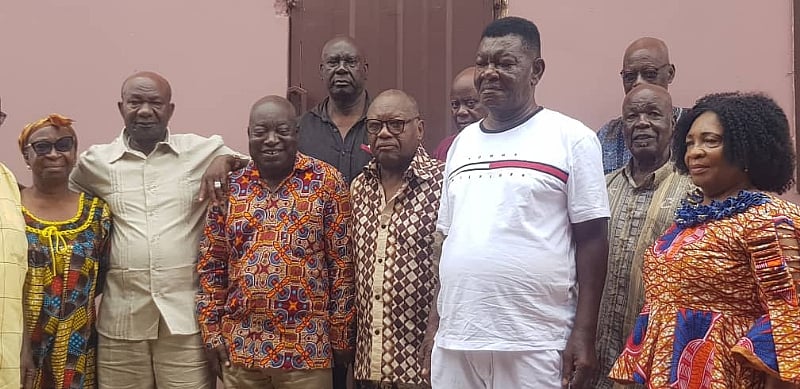The arrest and subsequent prosecution of Kwame Baffoe, the Bono Regional Chairman of the New Patriotic Party (NPP), popularly known as “Abronye DC,” has ignited a firestorm of controversy, with the NPP’s Bono Regional Council of Elders vehemently condemning the actions and characterizing them as a politically motivated witch hunt orchestrated by the ruling National Democratic Congress (NDC). Abronye DC was taken into police custody on September 8, 2025, and remanded for a week on September 12, 2025, on charges of “offensive conduct conducive to the breach of public peace.” The Council of Elders argues that these charges are a blatant affront to the repeal of the criminal libel law and a direct assault on freedom of expression, cornerstones of Ghana’s democratic principles.
At the heart of the Elders’ outrage lies the conviction that Abronye DC’s arrest is a calculated maneuver to stifle dissent and intimidate the opposition NPP. They contend that the government, under the guise of maintaining public order, is systematically targeting NPP figures to silence critical voices and curtail their ability to engage in robust political discourse. The Council underscores the importance of freedom of expression in a democratic society, emphasizing that while they do not condone insults or inflammatory rhetoric, every citizen has the right to express their views on matters of national importance. They argue that Abronye DC’s statements, while potentially controversial, do not warrant the heavy-handed response from the authorities, particularly in light of the repeal of the criminal libel law.
The Elders further point to what they perceive as a double standard in the government’s approach to policing political speech. They allege that supporters of the NDC have engaged in equally, if not more, inflammatory rhetoric without facing similar repercussions. This perceived selectivity, they argue, exposes the government’s true intentions: to selectively target and muzzle the opposition while shielding its own supporters from scrutiny. The Elders believe this biased application of the law undermines the principles of fairness and equality that are fundamental to a healthy democracy.
Adding fuel to the fire is the manner in which Abronye DC was arrested, described by the Elders as a “Rambo style” operation, which they interpret as a deliberate show of force intended to intimidate not only Abronye DC but the entire NPP. This aggressive approach, they argue, is reminiscent of a bygone era when dissent was suppressed through heavy-handed tactics, and it represents a dangerous regression from the progress Ghana has made in establishing a democratic culture. The Elders view the arrest as a calculated move to create a climate of fear and discourage open criticism of the government.
The Bono Regional Council of Elders has issued a call to action, urging influential institutions like the National Peace Council (NPC), the Christian Council of Churches, the Ghana Catholic Bishop Conference, and civil society organizations to intervene and halt what they perceive as a dangerous slide towards authoritarianism. They believe that these bodies, respected for their neutrality and commitment to democratic values, have a crucial role to play in safeguarding freedom of expression and ensuring that the government adheres to the principles of due process and respects the rights of all citizens. They warn that failure to intervene will have dire consequences for Ghana’s democratic development.
The Elders argue that allowing the government to continue on this path unchecked will set a dangerous precedent, emboldening them to further suppress dissenting voices and erode the foundations of Ghana’s democracy. They believe that the actions against Abronye DC are not isolated incidents but rather part of a broader pattern of intimidation aimed at stifling political opposition. They emphasize that a vibrant democracy requires a free and open exchange of ideas, even when those ideas are controversial or critical of the government. Silencing dissent, they warn, will ultimately lead to a less informed and less engaged citizenry, weakening the fabric of democracy itself. The Elders believe that the future of Ghana’s democracy hangs in the balance and that swift and decisive action is required to protect it.














